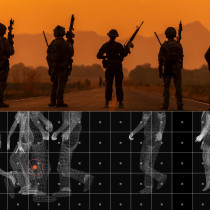BBC website hacked by a group called "Silverlords" for the freedom of Kashmir
Hackers have broken into a BBC internal communications network and posted a web page in support of Kashmiri independence.A server at BBC Monitoring was hacked into on 30 April and a notice from the "Silverlords for the freedom of Kashmir" placed on the website, BBC Monitoring has confirmed.
The site is used by BBC Monitoring purely as a working tool linking staff at BBC Monitoring's headquarters in Caversham near Reading to staff working overseas, a spokesperson for the BBC said.



































































